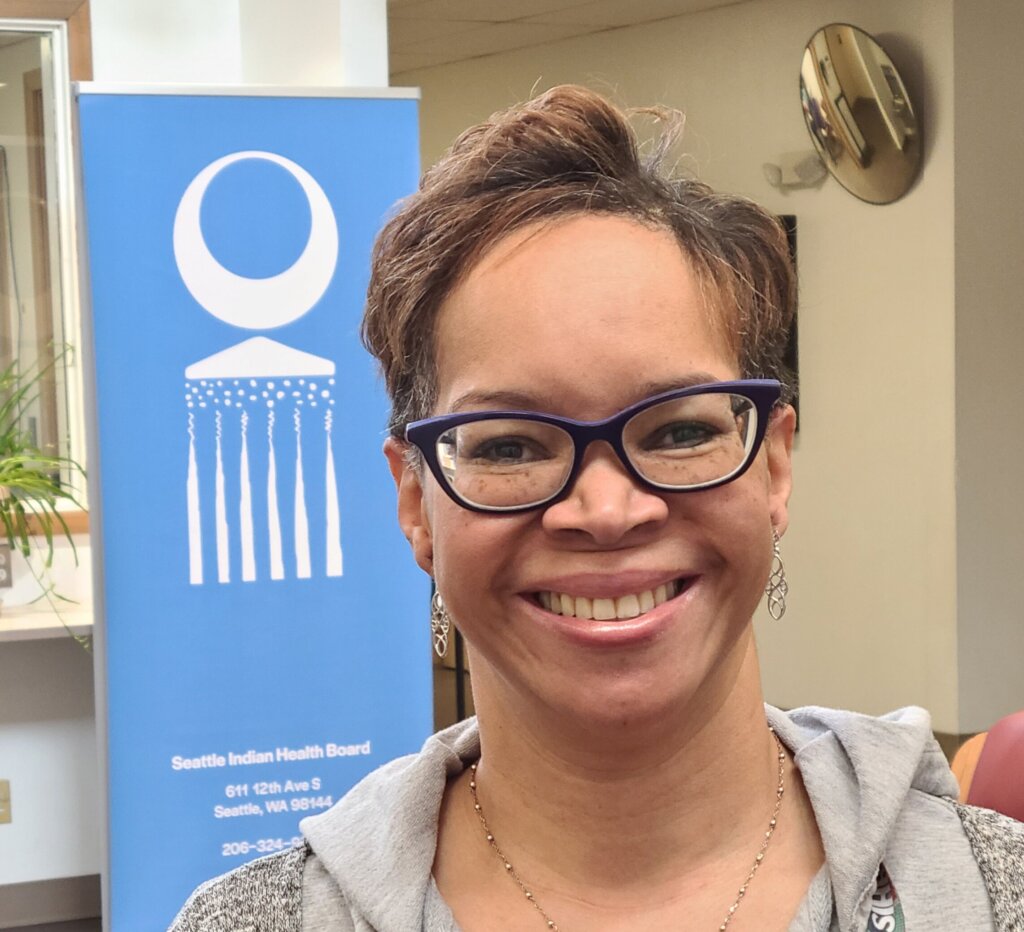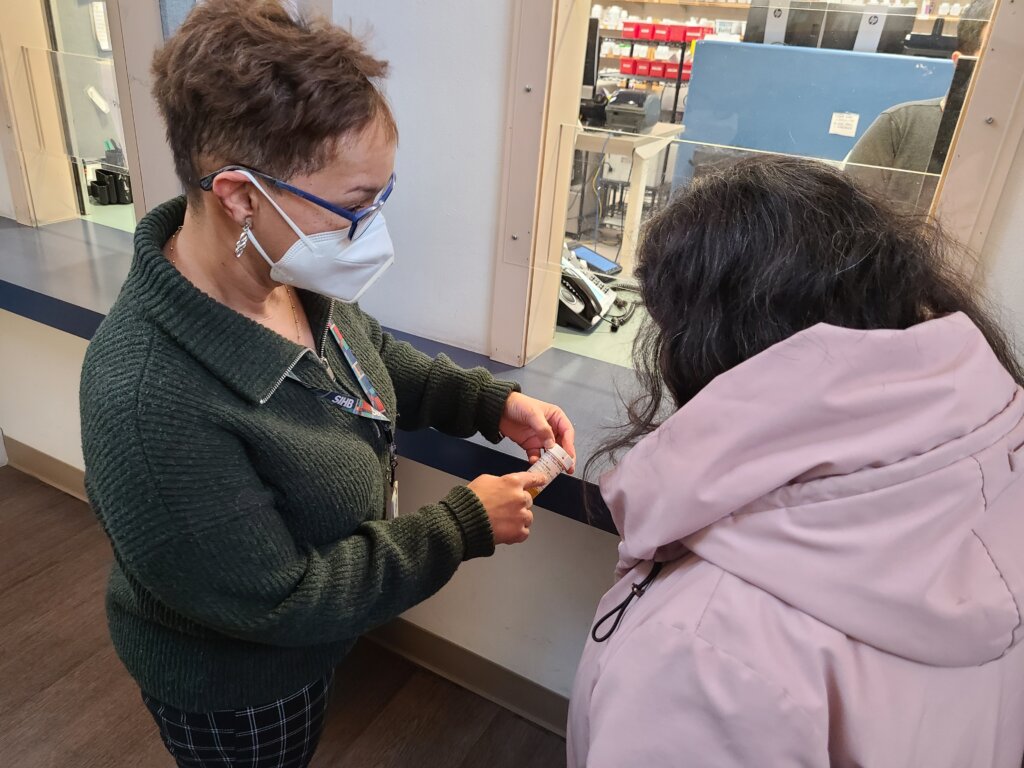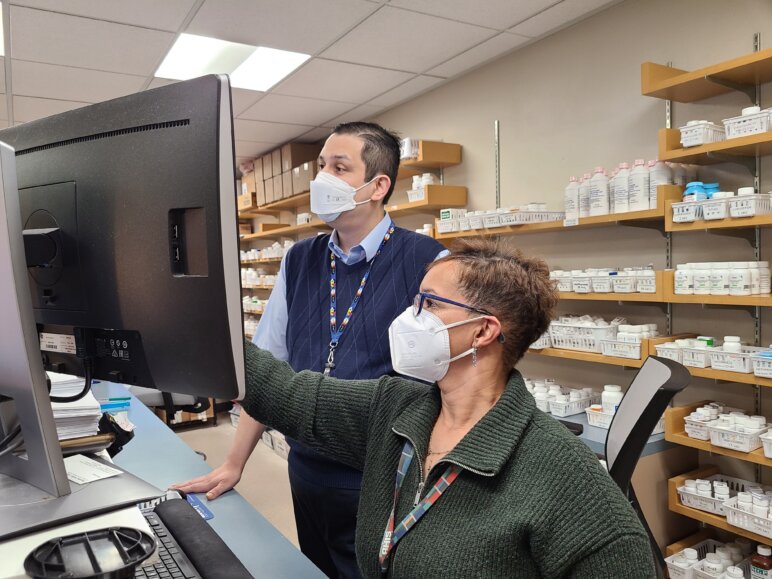Already sizeable and growing, Seattle Indian Health Board’s workforce is filled not only with talent but also an array of lives, journeys, and wisdom. “Relative to Relative” is a conversation series, lowering barriers to connection through unscripted storytelling. Each installment is an invitation to weave new relationships and recognize the humans behind our healthcare.
Occasionally, you might come across a supremely accomplished person who makes you feel just a tiny bit jealous – yet you can’t help but like them because they’re just too generous with their gifts. Our pharmacy director Terri Adams-Kincaid may be one of those people.
“She’s obnoxiously humble,” jokes her friend Nick Christian, Seattle Indian Health Board’s Workforce Development Director. In other words, Terri is passionate about serving her community, but less inclined to talk about the accolades that come with it.

It’s fitting that her sorority, Alpha Kappa Alpha, has named Terri “Silent Pearl of the Year” twice, both in 2020 and 2022. The award recognizes a sorority sister who “is consistently working silently behind the scenes” to support others with a positive and encouraging attitude in her communication.
“I wanted to be able to give back to the community, have some intent and some purpose with my career, really feel as though I was a healthcare provider,” Terri explains.
A pharmacist for 28 years, Terri’s early education began at schools within a 15-minute drive of Seattle Indian Health Board’s flagship clinic. At Washington State University, she became the first recipient of the Jessie Senora Sims Walker Scholarship, an award named for the first Black WSU graduate..
She married her college sweetheart and raised two sons. Working for a national retail chain, Terri rose to district manager of 26 pharmacies. Then, a position at Seattle Indian Health Board caught her eye.
That was four years ago. Then, as now, what gets Terri out of bed in the morning is the opportunity to support people with more than just medication. “They may need someone to talk [to] in there for a second,” she says in a reflective voice. “And I believe that it’s my job to be able to be that buffer, that placeholder in their life for that moment in time.”
Like the time a relative asked for replacement medication multiple times before he was due for a refill. “And we took care of him, of course, in the pharmacy,” Terri remembers. “But the third time, something just struck me different. And I said, you know, let me ask him, you know, what’s going on?”
The relative confided he was experiencing homelessness, and that his medication had been stolen repeatedly. They came up with a solution that made his medication less visible to others. Months later, they still talk.
“I love the fact that we call our patients ‘relatives.’ I feel like they’re family. I feel like my team [members] are family, and I couldn’t have picked a better place to be a part of the community every day.”
Nick Christian says her friend has a gift for making people feel seen. The University of Washington School of Pharmacy must have felt the same as they praised Terri for mentoring current pharmacy students. For the past two years, she’s also mentored three younger girls as part of a STEM (science/ technology/ engineering/ math) program for children of color. Moreover, she also serves as the membership chair for the graduate chapter of her sorority — her third leadership position.

Yet, the pharmacy director rarely mentions her accomplishments, except in passing. Nick suspects Terri Adams-Kincaid just sees her exemplary work as something to be expected, not anything extraordinary. But as the legendary author Maya Angelou once said, “People will forget what you said. People will forget what you did. But people will never forget how you made them feel.”
